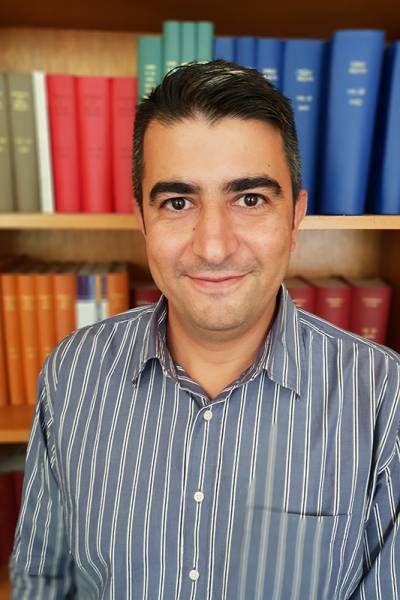Dr Ozan Aksoy is a Lecturer in Social Science and is the Programme Leader for the Social Sciences with Quantitative Methods BSc.
What do you most enjoy about your position at IOE, UCL's Faculty of Education and Society and why?
I had a research-only position before joining UCL. At UCL, I have been mixing research with lots of teaching. I came to realise that teaching is one of the best ways to acquire new skills and to hone existing ones.
It is also very fulfilling to see my students’ development in their studies. At first they typically perceive quantitative methods as challenging, and these methods can indeed be challenging. But through time, that feeling turns into a feeling of accomplishment.
Quantitative skills are highly transportable and sought after in the industry and academia alike. My students quickly realise the benefits of their quantitative training when they apply for graduate programmes or jobs.
What working achievement or initiative are you most proud of?
I am proud of my scientific publications and contributions to my discipline. In fact, I have been very fortunate to have been recognised for my contributions to sociology. In 2019 I received the Raymond Boudon Early Career Achievement Award of the European Academy of Sociology. This award is given annually by the Academy to a scholar who is under 40 years old or within 10 years of obtaining their PhD, and has made significant contributions to European sociology.
In 2018 I received the Robert K. Merton Award of the International Network of Analytical Sociology. Robert Merton and Raymond Boudon have strongly influenced my work, so receiving these awards named after them was special.
“What's the most important thing you've learned about the subject you teach?
Correlation is not causation!
What is the focus of your research and what benefits do you hope your discoveries and/or insights will bring?
I have worked on two main strands of research. The first one is on cooperation and pro-social behaviour. The second one is on the interface of politics and religion. My first research strand is relevant for today’s biggest problems. Addressing issues such as climate change or inequality requires significant cooperation at various levels.
As to my second research focus, evaluating populist policies with data and understanding the interplay between religion and politics may help retain our sanity in today’s world. I am, however, generally driven more by curiosity, that is trying to make sense of the world around us than potential benefits of research.
How long have you been at UCL?
I have been at UCL since 2016. Prior to joining UCL I was a postdoctoral research fellow at the Department of Sociology and Nuffield College, University of Oxford.
What attracted you to take up your position at IOE?
The interdisciplinarity of the scholars and the quantitative methodological know-how in the department were some of things that attracted me to IOE. Our department maintains world-renowned longitudinal datasets. Those datasets provide unique research opportunities for quantitative scholars like myself. There is a nice climate of collegiality in the department too. Also being in the heart of London is something that makes UCL very attractive.
What would it surprise people to know about you?
I will give a surprise exam at noon on one weekday next week. (Spoiler: search for the “surprise exam paradox” of the “hangman paradox”.)
What other subject outside of your area of specialism interests you?
I very much like to read popular science books on cosmology.
 Close
Close


